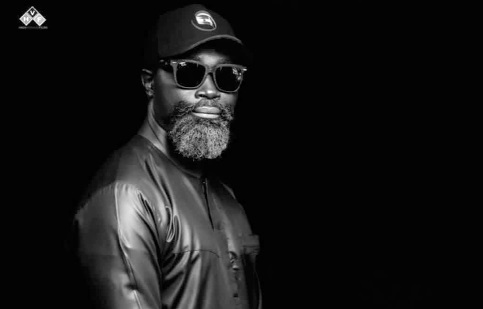![]()

On your marks…get set ….slam!
If you have been following the Ehalakasa movement in this country since its inception in 2007, then you know they ride on performance poetry as a dynamic medium to engage society.
Well, what you need to know about them now is that, though they still float like butterflies and sting like bees with words, they have also in recent years gravitated more towards the competitive edge of what they do. That’s the slam.
A poetry slam is a competitive spoken word event held before a live audience and a panel of judges. Practitioners don’t necessarily read from a page but manage to conjure emotion and the attractiveness of everyday language and delivery through their enthusiasm and voice, with an eye on a prize.
Benedict Kojo Quaye, better known as Sir Black, a prime mover behind the Ehalakasa movement, explains that the poetry slam is like any other Olympic sport where people compete for honours.
“Yes, we still do poetry to entertain, educate and inspire but how do we see the future of that? Now, we can say that with the global prominence of poetry slams, there is something to look up to, something we are happy to be part of. Slam business has revolutionalised the face of poetry,” Sir Black stated.
Apart from the World Slam Championship, there are regional tournaments with the Africa Slam Championship as one of them. Countries get to the world stage when they qualify from the regional events.
After a little lull in organising the Ghana National Slam Championship, Ehalakasa came up with one again last year. There were three preliminary contests in June, August and October where three winners were selected at each stage. The nine finalists clashed on December 3 and Twita Lit came up tops.
![]()
Twita Lit — 2022 Ehalakasa National Slam champion (left) & Briana Buckman — 2022 SheSheSlam champion
Funding
The idea is for her to represent Ghana at the Africa Slam in Mali in July this year and if she progresses from there, she’ll head to Brazil for the world event in October. But how all that pans out depends on the amount of funding the Ehalakasa movement can lay hands on.
Support for them has been far and between but members believe it is the medium that has chosen them and they would hang in there, no matter what, to touch everyone with their spoken word creativity.
They insist the programmes at home and efforts to be part of international competitions are all aimed at bringing glory to the country but they continue to hit stone walls in the search for sponsorship.
According to Sir Black, the current World Slam Champion is a South African. As part of his prize, he is being hosted by countries who are members of the World Slam Organisation during their annual festivals.
The Ehalakasa movement has also sent in a request to host him here as a way of helping to popularise poetry slams but that hope will be shattered without the necessary financial support.
“We hardly get any sponsors for our events and it is not for lack of trying,” Sir Black says. “It has become really stressful for us so we’ve resolved not to bother about that anymore. When we have an event, we contribute what little amounts we can raise among ourselves and we move on”.
When the movement moved on to organise the maiden SheShe Slam last year to bring in more young women, the response was quite encouraging. A call is already out for contestants to register for this year’s SheShe Slam to be held in March to coincide with the 2023 International Women’s Day celebration. Winner of the 2022 SheShe Slam was Briana Buckman.
Workshops
It was for the sake of more young slammers such as Briana Buckman that the Ehalakasa movement ran its SlamImpulse workshops at the Goethe-Institut in Accra from July to November 2022. The workshop series were dubbed, ‘A Communal Incubator for the Future of Performance Poetry in Ghana.’
Each SlamImpusle workshop was a full day of learning the game of slam and to develop the psychology and skill of playing it. Spoken word artistes regard the slam as a step further on the performance poetry ladder. More especially, it is seen as ‘a green card for crossing boundaries and borders’.
“At the moment, people cannot travel out of this country simply for poetry unless somebody outside who has followed them closely decides to invite them,” Sir Black pointed out.
“But with the slam, so long as you win one, you are bound to cross the borders of your region. We can even play friendly slam matches with neighbouring countries so it is a good opportunity for young people to push themselves a bit more into the slam space”.
Sir Black himself got pushed more into the public arena when he won first place in the poetry segment of The Search talent contest organised by Peace FM in 2006.
A year later, he coined the ‘Ehalakasa’ word with his late friend, Nii Lante Lamptey to reflect a more Ghanaian portrayal of the type of poetry they were doing: ‘Eha’ means song in Ewe, ‘la’ means sing in Ga and ‘kasa’ means talk in Twi.
“The poetry slams are no different from the National Maths and Science Quiz or Spelling Bee programmes. Its development must not be left to the poetry community alone. More hands are needed to uphold it and make it blossom”, Sir Black stated.
